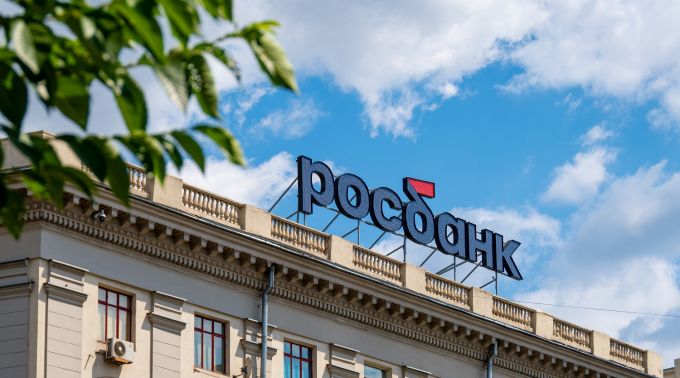
Here’s How Much Russia’s Biggest Banks Are Spending on CBDC IntegrationHere’s How Much Russia’s Biggest Banks Are Spending on CBDC Integration Rosbank, one of Russia’s biggest banks, has spent around $1.6 million on digital ruble integration – despite the fact that the CBDC pilot is less than two months old.The bank is one of Russia’s most bullish when it comes to CBDC and crypto adoption.Prior to the August launch of the digital ruble pilot, Rosbank said that it was “ready to participate in a pilot project with real clients.”Rosbank also launched an international ...
Rosbank, one of Russia’s biggest banks, has spent around $1.6 million on digital ruble integration – despite the fact that the CBDC pilot is less than two months old.
The bank is one of Russia’s most bullish when it comes to CBDC and crypto adoption.
Prior to the August launch of the digital ruble pilot, Rosbank said that it was “ready to participate in a pilot project with real clients.”
Rosbank also launched an international crypto pay pilot in June, allowing Russian firms to trade using cryptoassets via a crypto exchange-powered platform.
Per Vedomosti, Olga Makhova, the Director of Change, Innovation, and Data Management at Rosbank, said that most of the money had been spent on “information security.”
She also said money had been spent on “building a gateway between the bank and the Central Bank’s [platform].”
Makhova said that Central Bank solutions mean there was no need was “no need” for Rosbank to spend on “deployed blockchain technologies.”
But she added that the bank had been forced to spend money on “deploying complex cryptography solutions.”
CBDC Integration: A Priority for Russian Banks?
Russian banks are thought to be spending money on interoperability solutions that will let them process transactions involving overseas CBDCs.
The Central Bank itself has claimed that this kind of functionality could be in place by 2025.
And the Rosbank executive claimed the company had begun investing in CBDC technology in 2021.
She said that the need to ensure all digital ruble transactions carry an electronic digital signature had required forward-thinking on the bank’s part.
Makhova said:
“The [integration of the digital ruble] is a very difficult [project] from an organizational point of view. It requires serious restructuring both for our systems and our mobile apps.”
Makhova concluded that Rosbank had spent “significant money on recruiting “highly specialized experts who understand [blockchain and CBDC] technology.
Rosbank is part of an initial group of 13 domestic banks working on the pilot.
The pilot is being conducted in 11 cities nationwide, with 600 citizens making use of the token.
The Central Bank has said that a group of 16 other banks is set to join the pilot in 2024, although the identity of these firms has not yet been revealed.




